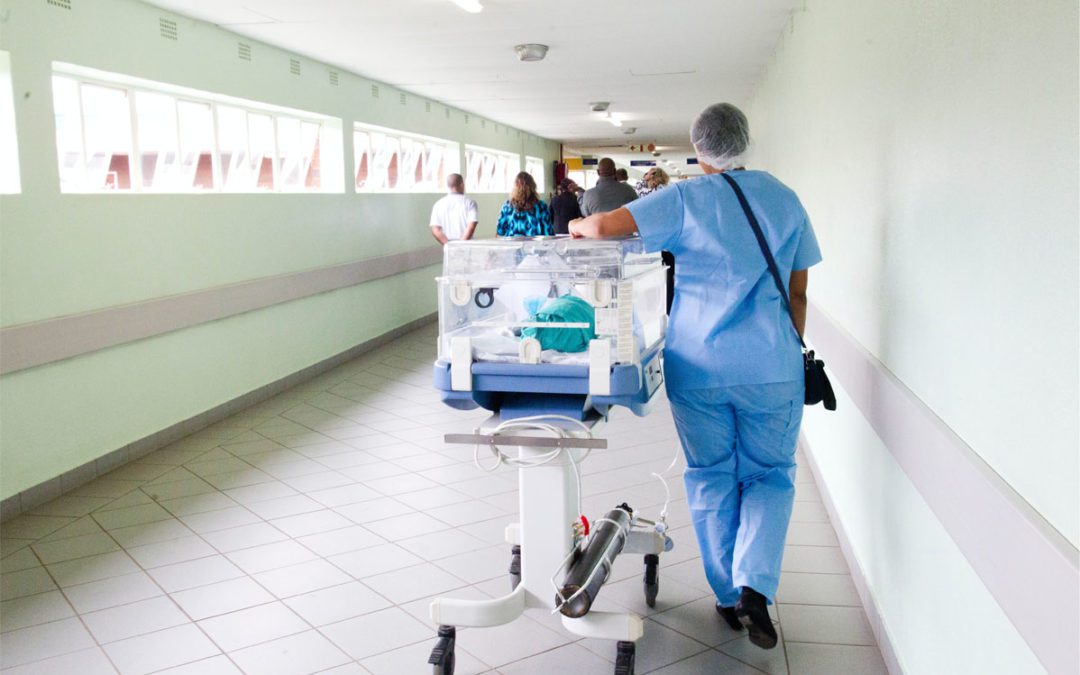Colorado ICUs are 95% full, CHA points to rising COVID cases and “very high” non-COVID hospitalizations
Hospital bed capacity is at its with acute care beds at 93% and intensive care unit (ICU) beds at 95% full.
While COVID-19 hospitalizations are lower than last winter highs, Cara Welsh, senior director of communication at the Colorado Hospital Association (CHA), says non-COVID-19 hospitalizations are also “very high.”
Get the latest state-specific policy intelligence for the health care sector delivered to your inbox.
Currently, Welsh says there are around 1,600 COVID-19 cases in the hospital, which is around 200 hospitalizations less than around this time last year. However, rising COVID-19 cases are coupled with standard hospital visits—like car accidents and trauma—which are continuing to rise as life returns to normal and pandemic restrictions ease.
Image: Colorado Department of Public Health and Environment
Welsh also says fears of catching COVID-19 in the hospital caused people to not get necessary preventative care.
“We are also seeing more people come to the hospital, who in some cases, we believe, may have delayed or put off their own preventative care earlier in the pandemic. Now they are coming to the hospitals really sick.”
Due to the effect of deferring care, hospitals in Colorado are still having elective surgeries, but are halting cosmetic surgeries. Welch says cosmetic surgeries are procedures where the patient’s health is not negatively affected if postponed for at least six months. However, elective surgeries are medically necessary procedures that are not as time sensitive, but crucial to the health of the patient.
Welch says hospitals will continue elective surgeries as best as they can. However, many hospitals have been forced to shut down units due to staffing shortages and a need for staffing in emergency departments and ICUs.
Staffing shortages have also greatly affected hospital capacity and the ability to care for patients, says Welch. She says nearly one in five health care workers have left the profession throughout the pandemic. Many of these workers have elected to take early retirement.
To address this, the state has reinstituted the in which organizations—like hospitals, residential care facilities, and correctional facilities—can ask for assistance from the state government for workers to improve patient care.
The state has also assisted hospitals through a to help facilitate the . The order allows hospitals to defer or not accept patients depending on its capacity constraints. Welch says CHA has had daily calls with the Polis Administration and the Colorado Department of Public Health and Environment to facilitate transfers.
Welch says this order has worked really well for hospitals, but caused some frustration and stress on patients and their families. Some patients are forced to transfer even if it means that their family may not be able to visit them.
“By facilitating these patient transfers, that allows us to take some of the pressure off of the metro area hospitals … there have certainly been some challenges … but at this stage [this] is the sort of thing that we have to do for the crisis that our hospitals are in.”
Welch says morale is struggling because there is a solution to the pandemic through vaccination. CHA urges those that are unvaccinated to get a vaccine and encourages all Coloradans to seek the necessary care when needed.
This content was originally published here.

